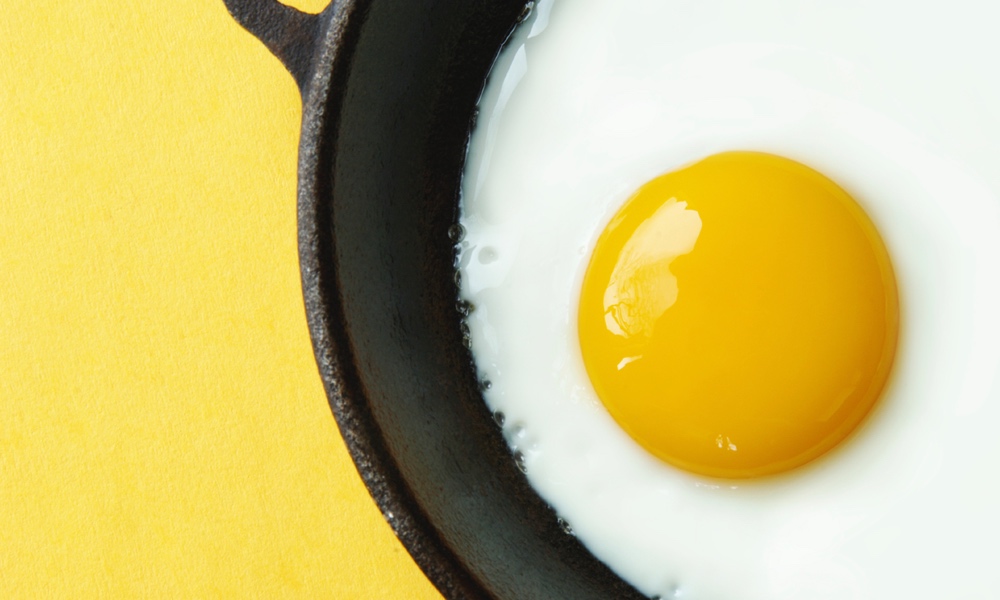If you've been avoiding eggs for fear of raising your cholesterol, it's time to reconsider what's on your breakfast plate. A new Australian study has cracked open a decades-old dietary myth. Eggs, even at two a day, won't raise your bad cholesterol, but saturated fats do.
When consumed as part of a low-saturated fat diet, eggs may actually reduce LDL (low-density lipoprotein) cholesterol, the so-called “bad” cholesterol linked to cardiovascular disease (CVD).
For years health guidelines have pointed a finger at eggs, warning consumers about their cholesterol content. But though eggs are high in cholesterol, researchers at the University of South Australia say it's time to shift the blame toward saturated fats, such as those found in bacon, sausage and other processed meats that commonly accompany eggs on the breakfast menu.
“Eggs have long been unfairly cracked by outdated dietary advice,” Professor Jon Buckley said in a media release. Buckley is the lead author of the study and Executive Dean of the UniSA Allied Health and Human Performance Academic Unit at the University of South Australia.It's not dietary cholesterol that's harmful, it's saturated fat. This means that eggs aren't a big threat to heart health; it's the fatty bacon on the side that's doing the damage.
“They're unique — high in cholesterol, yes — but low in saturated fat. Our study shows it's not the cholesterol in eggs that increases LDL levels, it's saturated fat. You could say we've delivered hard-boiled evidence in defense of the humble egg.”
The study was a randomized, controlled crossover trial involving 61 adults (average age: 39 years) with a healthy body mass index and baseline LDL levels below 3.5.
The participants cycled through three different diets, each lasting five weeks:
- EGG Diet: High in cholesterol, low in saturated fat
- EGG-FREE Diet: Low in cholesterol, high saturated fat
- CONTROL Diet: High cholesterol, high saturated fat with only one egg per week.
At the end of each diet phase, participants' LDL cholesterol levels were measured to assess the diet's impact.
The results surprised the research team. The EGG Diet — two eggs per day combined with low saturated fat intake — not only didn't raise LDL cholesterol, it reduced it compared with the high saturated fat CONTROL diet.
These findings make a clear distinction: It's not dietary cholesterol that's harmful, it's saturated fat. In practical terms, this means that eggs aren't a big threat to heart health, especially if they're boiled, poached or cooked in olive oil. It's the fatty bacon on the side and in which eggs are often fried that's doing the cardiovascular damage.
The EGG diet did result in some changes in LDL particle size. Specifically, there was a shift toward smaller, LDL particles that were more likely to build up inside the arteries. However, overall, participants' LDL levels went down. This suggests a net benefit to heart health.
Cardiovascular disease remains the leading cause of death worldwide. Nearly 90 percent of adults In the United States over the age of twenty are at risk for developing heart disease. Basing dietary advice on current, rigorous evidence, rather than on outdated fears, can help everyone make sound dietary decisions.When consumed as part of a low-saturated fat diet, eggs may actually reduce the so-called “bad” cholesterol linked to cardiovascular disease. Consider pairing your eggs with avocado and tomato instead of processed meats.
The takeaway? Don't ditch the eggs. They can be part of a healthy diet as long as you keep the amount of saturated fats you consume low. Consider pairing your eggs with avocado and tomato instead of processed meats. This way you can enjoy breakfast without a side of heart disease.
The study is published in The American Journal of Clinical Nutrition.





